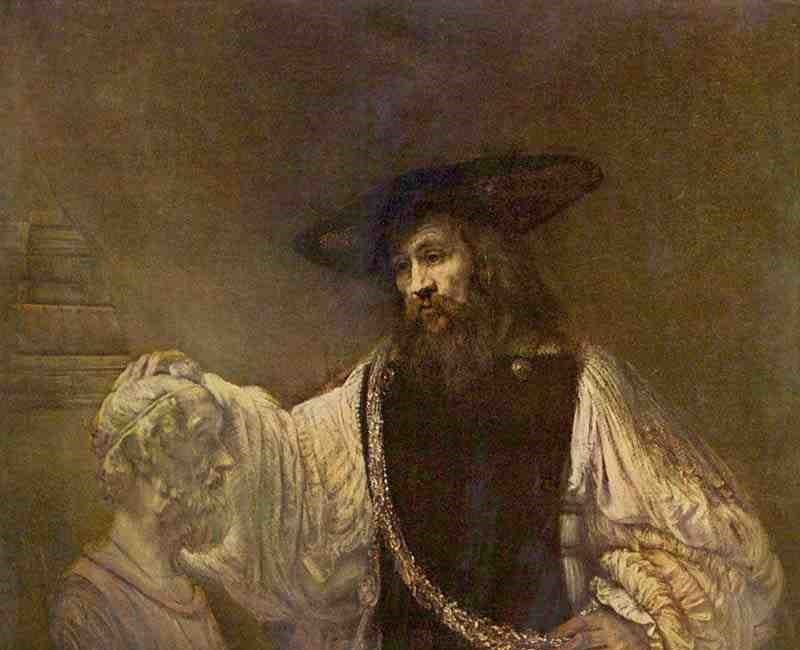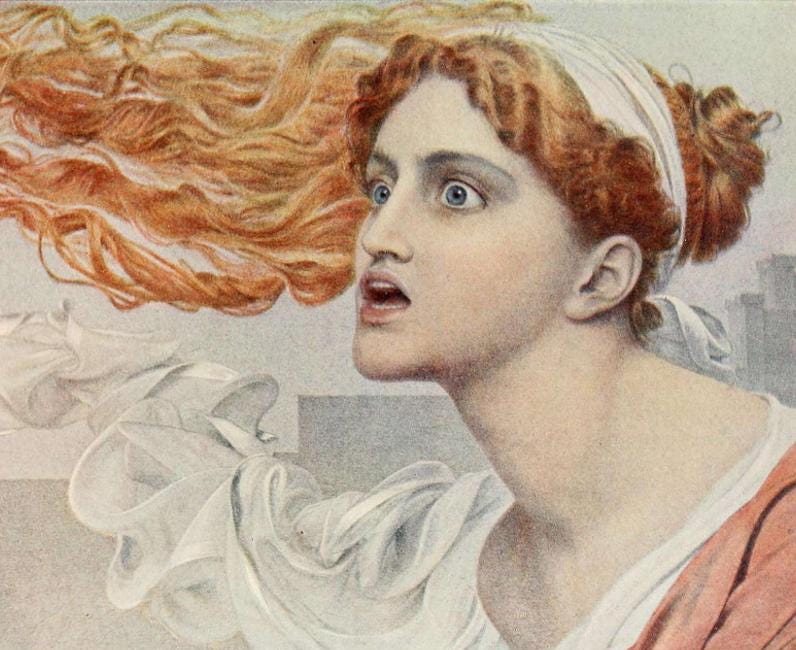“It is through beauty that one proceeds to freedom”
—Friedrich Schiller
For the third of three lectures for the Rising Tide Foundation’s July 6th event in Montreal, the Editor-in-Chief of The Chained Muse gave a presentation on the work of Friedrich Schiller and his letters on the aesthetic education of man.
Having had high hopes for the establishment of sovereign republics in Europe after the success of the American Revolution, Schiller wrote his “Letters on the Aesthetic Education of Man” (1795) as a response to the tragic consequences of the French Revolution. While the young American republic succeeded in establishing a republican system of representational government based on Natural Law, the events in France led to a very different outcome, culminating in a final bloody “Terror.”
Once the intellectual and economic powerhouse of Europe, the French Republic found itself torn apart by the extremes of lawless savagery and absolute tyranny—all within the matter of a few years.
In response, Schiller wrote:
The edifice of the natural State totters, its rotten foundations give way, and a physical possibility seems granted to place law on the throne, to honor man, finally, as an end in himself and to make true freedom the basis of political association. Vain hope! The moral possibility is wanting, and the great moment finds a little people.
-Fifth Letter
France’s attempt to replace its system of hereditary monarchy devolved into a public blood bath, and then boomeranged back with the accession of Napoleon Bonaparte to a new imperial throne. A “great moment” had indeed found a “little people.”
What followed was a series of orchestrated wars—dubbed the Napoleonic Wars. The destruction brought on by these wars would create the conditions for the unification of Europe’s hereditary powers. These forces would see to it that the principles of republicanism championed by the American Founding Fathers and their allies across the world would never take root in Europe again. The event which marked the consolidation of their power is known as the 1815 Congress of Vienna, an event which Henry Kissinger described as one of the greatest lessons in history for those rulers committed to preserving a traditional “equilibrium.”
So why did the French republic fail where the American republic originally succeeded? More importantly, how might these lessons be relevant for preserving the spirit of republics today, a project which goes back to the very origins of Western philosophy, starting with Plato’s Republic?
As a poet, historian, philosopher and tragedian of the highest order, Schiller recognized that the objective failures of the French Revolution and its people lay in something beyond the tangible realm. The question of the subjective inner man, which made any objective change in the outward world possible, had to be addressed with as much rigor as passion.
The result was a series of 27 letters.
Aesthetic Education
What kind of education resolves the tension between the inner subjective man and the external objective world?
Schiller writes:
This support is not found in the natural character of man who, egotistical and violent, aims at the destruction rather than at the preservation of society. It is found just as little in his moral character which, hypothetically, should first be formed, and which, because it is free, and because it never appears, can never be acted upon and never be counted on with certainty by the lawgiver.
Thus, Schiller describes “a third character which, related to these other two, might pave the way from the rule of mere force to the rule of law and without preventing development of the moral character, might serve as a sensuous pledge of invisible morality.” However, rather than taking some kind of rigid formulaic approach like the one popularized by Emmanuel Kant, Schiller believed the solution lay in the realm of the aesthetic, that is, in the discovery of the freedom uniquely afforded to us by the fine arts.
He writes:
Thus, the fine arts have their purpose in common with nature, or actually with her Author. They playfully grant what [pleasure] their more serious sister allows us to obtain only with labor; they make a gift of what is usually the bitterly won prize of much effort. We purchase enjoyments of the mind with straining diligence, the sanction of reason with painful sacrifice, the pleasure of the senses with austere abstinence, or atone for the excesses of these with a train of suffering; only art affords us pleasures which need not first be earned, which demand no sacrifice, and need not be purchased with repentance.
- On the Reason Why We Take Pleasure in Tragic Subjects
Schiller saw that without a true aesthetic education, society would always find itself vacillating between extremes such that, “In the lower and more numerous classes, crude, lawless instincts are found which are unleashed by the loosening bonds of civil order,” while “On the other hand the civilized classes present to us the still more repulsive spectacle of laziness and depravity of character which is all the more revolting because culture is its source.” As long as man lacked the cultivation of true aesthetic taste and freedom, whose highest expression belongs to the province of the fine arts, man would forever be caught in a series of false dualities i.e., lawless savagery vs. heartless barbarity, blind sensuousness vs. cold rationality, starry-eyed Romanticism vs. soulless “Enlightenment.”
So, in his essay “On Grace and Dignity” Schiller writes of the psychological and spiritual freedom embodied in the “beautiful soul” who has fully embraced the principles of an aesthetic education:
But, in a beautiful life, as in a painting by Titian, all of those cutting border lines have vanished, and yet the whole form issues forth the more true, vital, and harmonious. It is thus in a beautiful soul, that sensuousness and reason, duty and inclination harmonize, and grace is its epiphany. Only in the service of a beautiful soul can nature at the same time possess freedom and preserve her form, since the former she forfeits under the rule of a strict sentience, the latter, under the anarchy of sensuousness.
Here, art and culture become the indispensable middle way which bridges the realm of sense and reason through the free play of art.
According to Schiller:
Art, like science, is free from everything that is practical and is established by human convention, and both rejoice in an absolute immunity from human lawlessness. The political legislator can enclose their territory, but he cannot govern within it. He can outlaw the friend of truth, but the truth exists; he can humiliate the artist, but he cannot degrade art.
Thus, Schiller asks:
But how does the artist protect himself against the corruptions of his time, which surround him on all sides? By despising its judgment. He looks upward to his dignity and the law, not downward to chance and need. Equally free from the futile activity which would gladly make its mark on the fleeting moment, and from the impatient fanatically zealous spirit which applies the measure of the Absolute to the miserable creations of the age, let him abandon the sphere of the actual to the understanding, which is at home here; however, let him strive, through the union of the possible with the necessary to produce the ideal. Let him stamp it on deception and truth alike, let him coin it in the playthings of his imagination and in the seriousness of his actions, upon every sensuous and spiritual form and hurl it silently into infinite time.
Join us as we explore Schiller’s letters on the aesthetic education of man, reflect on their relevance in our own perilous times, and look to art’s role in leading man to true political freedom.
Allowing the Poets into the Republic: Revisiting Plato’s War Against Public Opinion
Featured in New Lyre Winter 2024 Paid subscribers get instance access to all posts and recordings on The Chained Muse. Founding Members receive full access to both New Lyre Magazine and Age of Muses, where we explore the state of twenty-first century culture, creativity and art. Additionally, Founding Members gain full access to our
Cassandra by Friedrich Schiller
I. Joy resounded through the Trojan Halls as the songs of lutes swelled; Hymns were chanted by the drunken Soon before the towers fell. Weary heads now calmly rested, Tears no longer plagued their eyes; Peleus was soon expected With his noble bride to rise.
The Ring of Polycrates
Polycrates (/pəˈlɪkrəˌtiːz/; Greek: Πολυκράτης), son of Aeaces, was the tyrant of Samos from the 540s BC to 522 BC. He had a reputation as both a fierce warrior and an enlightened tyrant. He stood on the ancient battlements, Proudly gazing from the parapets








Share this post